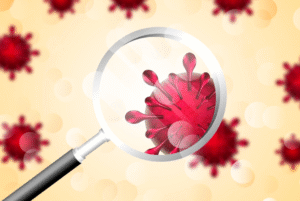Overview
Genitourinary infections encompass a range of conditions affecting the urinary and genital systems. In Korea, these infections are prevalent and can impact individuals of all ages. The country’s healthcare system has established guidelines and monitoring systems to manage and treat these infections effectively.
What are Genitourinary Infections?
Genitourinary infections include:
- Urinary Tract Infections (UTIs): Infections affecting the urinary system, including the bladder, kidneys, and urethra.
- Sexually Transmitted Infections (STIs): Infections transmitted through sexual contact, affecting the genital tract.
These infections can be caused by various pathogens, including bacteria, viruses, and fungi.
Symptoms
Common symptoms include:
- UTIs:
- Painful urination
- Frequent urination
- Lower abdominal pain
- Cloudy or foul-smelling urine
- STIs:
- Genital sores or warts
- Unusual discharge
- Itching or irritation
- Pain during intercourse
Causes
- UTIs: Often caused by bacteria such as Escherichia coli entering the urinary tract.
- STIs: Result from pathogens like Chlamydia trachomatis, Neisseria gonorrhoeae, and the herpes simplex virus.
Risk Factors
- UTIs:
- Female gender
- Sexual activity
- Use of certain birth control methods
- Urinary tract abnormalities
- STIs:
- Unprotected sexual intercourse
- Multiple sexual partners
- Previous history of STIs
Complications
- UTIs: Can lead to kidney infections if untreated.
- STIs: May result in infertility, chronic pain, or transmission to newborns during childbirth.
Prevention
- Vaccination: Vaccines are available for certain STIs, such as the human papillomavirus (HPV) vaccine.
- Safe Sexual Practices: Use of condoms and regular STI screenings.
- Hygiene: Proper genital hygiene to prevent UTIs.
Treatment Options in Korea
General Management
- UTIs: Antibiotics are the primary treatment. The Korean Antimicrobial Resistance Monitoring System (KARMS) monitors antimicrobial resistance patterns to guide appropriate therapy .
- STIs: Treatment varies by infection type. For example, the 2023 Korean STI guidelines recommend doxycycline for chlamydial infections and benzathine penicillin G for syphilis .
Specialized Care in Korea
- Advanced Hospitals: Institutions like Seoul National University Hospital and Asan Medical Center offer specialized care for complex cases.
- Fertility Clinics: Provide management for STIs affecting reproductive health.
Public Health Measures
- Surveillance: The Korea Disease Control and Prevention Agency (KDCA) conducts regular surveillance to monitor infection trends and implement control measures.
- Education: Public health campaigns promote awareness and prevention strategies.













